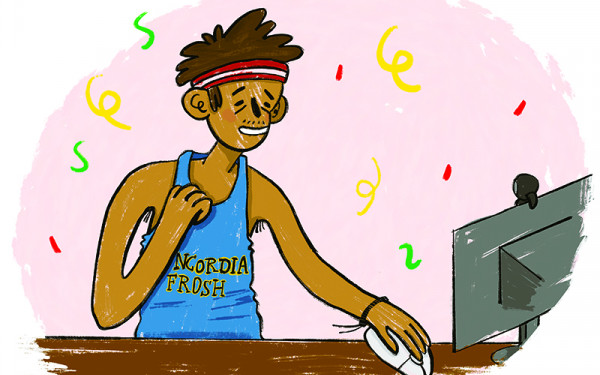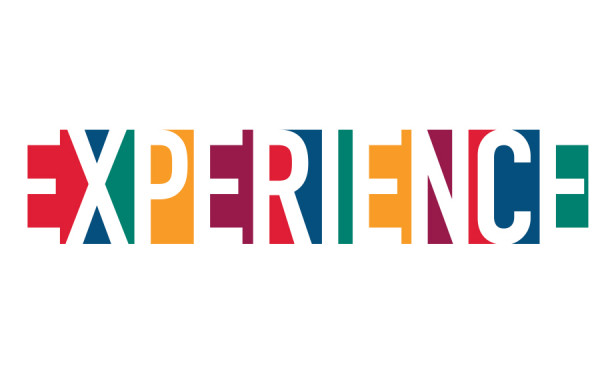Behind the Scenes of ASFA’s Launch Week
From the Perspective of a Launch Leader
This year, the Arts and Science Federation of Associations (ASFA) rebranded their Frosh activities by adopting the title “Launch Week” and aimed to create a safer, more inclusive space for those entering university.
I naively applied to be a Launch leader, not really knowing what the job entailed, but thought it would be a great opportunity to meet new people and have some fun. What resulted was a chaotic week filled with many highs and lows, which felt more like a high school experience than a university orientation.
As a part of the rebranding and a push to create a safer environment, all Launch leaders (as well as “Launchees”) had to undergo sensitivity training—a bold initiative aimed at educating and preventing future cases of sexual assault and harassment. As soon as I sat down for the three-hour seminar with my fellow leaders, I sensed trouble.
As the lecture began, it became apparent that many of my fellow leaders had never been educated on sexual ethics and gender issues. Some also began to voice their discontent with the training and refused to take it seriously, with one male individual failing to understand that it’s not okay to approach women on the street and compliment them. When it came to a written exercise to discuss the meaning of “Launch Week,” one group wrote that it was all about Jack Daniels and condoms—an ironic and vapid answer that clearly goes against the new rebranding strategy.
Following this day of training, all of the leaders and coordinators met again and gave a quick introduction to everyone, stating our names, some basic information and our preferred pronouns. This was supposed to be a simple exercise to include those who use alternative pronouns, but was sadly perceived as a joke by many people in the room.
As we went around the room one by one, many laughed and joked as they stated their pronouns, making the space uncomfortable and unsafe for those who identify differently than the traditional gender binary. At this moment, it was clear that many of my fellow leaders embodied the definition of machismo and “bro culture”—something that plagued ASFA even before the Mei-Ling controversy—and had little empathy and consideration for those who might be different.
When it came to a written exercise to discuss the meaning of “Launch Week,” one group wrote that it was all about Jack Daniels and condoms—an ironic and vapid answer that clearly goes against the new rebranding strategy.
Fast forward to the opening barbeque of “Launch Week” at the Loyola campus: I arrived at 9:30 a.m. to find hoards of “Launchees” waiting in a snaking line around the premises. Nothing had been set up yet, and they were forced to wait an hour for proceedings to get started. Teams had to be prepared.
One would think that this would’ve been an organized affair with teams being pre-planned and coordinated, but no—chaos ensued and leaders went into the crowd and chose whomever they wanted on their team. This was the most cringe-worthy and uncomfortable moment by far, like high school gym class all over again, as leaders selected individuals based on their physicality. At one point I looked over to see one male leader surrounded by at least ten female Launchees he had chosen. Clearly this also went against the ideas of inclusion that were lamented in our trainings. I must mention though that the coordinators tried their best to stop this entire “gym class” scenario as soon as they heard what was going on, but almost all the teams were formed at this point, and it was too late to turn back.
After this chaotic morning, all 400 Launch Week participants underwent two hours of sensitivity training in classrooms at Loyola. Many of the Launchees were upset at having to sit in a classroom talking about consent and sexual ethics on a bright sunny day, especially when there was free beer outside.
But this was an important conversation to bring up, especially during a week when peer pressure and binge drinking can cause a number of regrets. Most of the Launchees understood the concepts that were being explained, but I could tell by the looks on their faces that they just wanted to get drunk.
The afternoon continued with a lot of beer, sunburns and socializing. It was clear that this year’s budget for “Launch Week” was at an all-time minimum, considering we had to cut camping tarps into long strips and lathered them with baby oil as a form of “slip and slide” (a very economical version indeed).
During the interview process, we were told Launch Week was trying to move away from the typical binge-drinking culture that accompanies typical “Frosh” activities, although there would be alcohol present at most events. This turned out to be a bit of a problem when one of my “Launchees” informed me that she couldn’t drink because of the medication she was on.
Now, not every event had drinking involved, but there was always alcohol present (such as people drinking from water bottles, coffee cups, etc.), and I could tell that she felt left out because she was sober. After the barbeque, she only came to one other event, and she dished out $150 like everyone else to participate for the whole week. The environment was not very accommodating for those who wished to remain sober.
The next few days would be long and somewhat torturous, with each event being poorly organized and filled with confusion. Some examples of this included a breakfast on Mont Royal, where the organizers showed up late to serve a measly bagel breakfast to an eager mob of hung-over students, and a scavenger hunt that was essentially an anarchic and drunken pub-crawl (with a pit stop at Boustan). Every night there was an after party, and there were always rumors swirling of participants and leaders hooking up with each other, which was strictly prohibited this year.
Apart from the lack of organization, I witnessed a lot of positive moments during “Launch Week” that are worth mentioning. The fact that 400 students underwent sensitivity training is unprecedented and progressive, and other universities should take note.
On a personal level, I also met a lot of really interesting and diverse Concordia students from different fields of study whom I never would have encountered on a regular basis. I also saw many new Concordia students forging bonds with each other, which will certainly help ease their transition into university. This was the main goal of Launch Week, and it was definitely achieved.

_814_1053_90.jpg)





_600_375_90_s_c1.jpg)